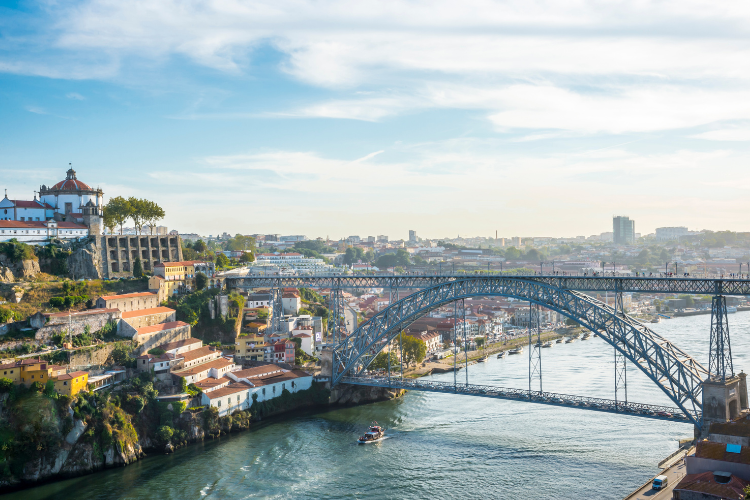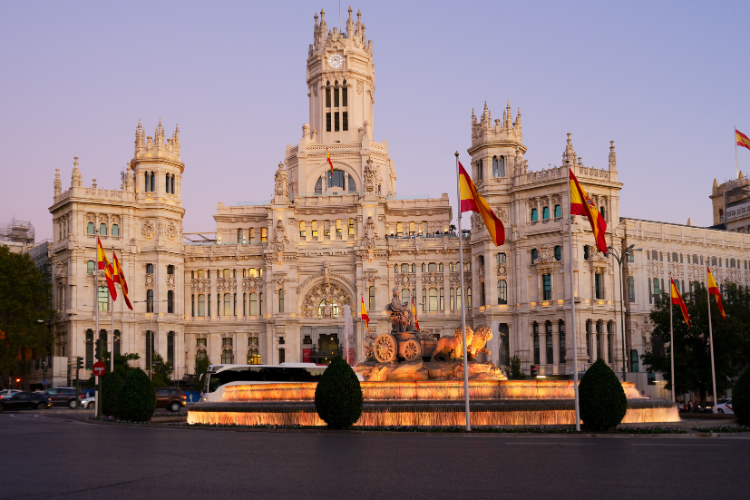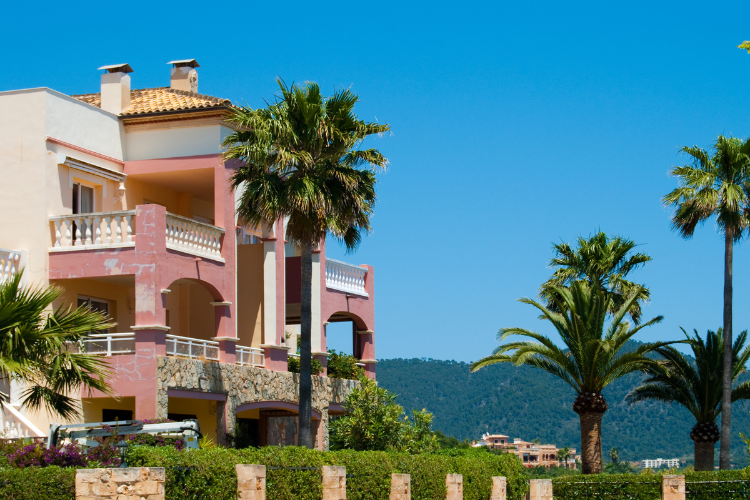Last Updated on August 11, 2023 by Maryam Siddiqui
When moving to a new country, you’ll need to understand the local culture and diversity of religious beliefs. Apprehending the situation will assist you in feeling free to express your own beliefs. This article is meant to help you understand all about religion in Portugal for a better experience before relocating.
We can relate to all the questions in your mind right now. Relocating to a new country is never easy, and all aspects of life must be well-thought-out. In most European countries, Catholicism is a big part of the community. Even throughout Portugal’s history, Catholicism has played an essential role in developing social and political situations. But, it’s not the only religion that Portuguese people follow.
Keep reading to know more about the religious diversity in Portugal and the list of holidays celebrated by the communities!
What is the main religion in Portugal?
Although Catholicism has been a big part of the country’s history, Portugal doesn’t have any state or official religion. People are free to practice whichever ideology they support without any societal pressures or intercession. However, if we look at statistics, the most prevalent religion is Christianity, with 83% of the country identifying as Christians.
Almost five decades ago, society’s opinions were significantly more restrictive and prohibitory to other belief systems.
However, things have changed dramatically since 1974 after the Revolution of the Carnations, which declared freedom to practice all religions. Portugal is now home to many expats who freely practice their beliefs.
A list of the main religions you’ll find in Portugal are:
- Catholicism & Christianity
- Judaism
- Islam
- Hinduism & Sikhism
- Atheism
- Agnosticism
Is there religious freedom in Portugal?
One of the best things about the Portuguese community is its tolerance toward diversity. No matter where expats live, they feel welcomed and safe regardless of their religion or ethnicity. The Law of 2001 protects people living in Portugal by stating their right to practice religious freedom with no discrimination.
Regardless of their religious backgrounds, expats find solace in the fact that Portugal welcomes them and ensures their safety. Since the country has hosted thousands of foreigners as tourists and for other reasons, Portuguese people realize how important it is to welcome different ideologies.
The Law declares that the state and its people are responsible for promoting human rights and solidarity. It also mentions the principle of tolerance as a major interest in resolving conflicts between people with different religious beliefs. While the law protects its residents completely, there is rarely a need to progress with such conflicts legally.
Tolerance is actively present in the nation, and even foreigners who relocate here are very open-minded and welcoming. Along with laws protecting all ideologies and individuals, workplaces also offer equal opportunities without bias. Read till the end to know more about the various ideologies you’ll find in Portugal and how different communities coexist for celebrations!

The Christian community in Portugal is very expressive
Portugal is historically a Roman Catholic country with interconnected communities that support each other spiritually and practically. The vast majority have Christian ancestors and are proud to express their beliefs in the most beautiful ways.
Catholicism is traditionally the main religion in Portugal
Since Portugal has a Roman Catholic history, Catholicism is a significant part of the culture and traditions. The religion mainly spread within the geographic zones after the creation of the Portugal Empire in the 15th Century. Due to tradition, sometimes it can be noticed that the older generation is more actively participative than the younger.
Following the inception of the Portuguese Empire in the 15th century, Catholicism played a vital role in shaping the nation’s identity.
The evangelical church has grown in recent years
More than three hundred churches have been planted in Portugal in recent years, totaling almost forty-six thousand. The community of evangelists exceeds two hundred thousand, out of which many are expats from Ukraine and other parts of Europe. Similar to other religious heritages, the government works to protect the evangelical community by all means.
- Read all about the Portugal Popular Saints Festivals!
The Sephardic Jewish community in Portugal
For many years, the Sephardic Jewish community has been a part of Portugal’s cultural heritage. To preserve and safeguard the legacy, the Lisbon Chamber has recently approved a Jewish Museum’s construction.
The history of the Sephardic Jewish community goes way back – almost 80 years! Nearly eighty thousand Jews found Portugal to be a haven even during the 1930s when German Jews were seeking refuge.
Things, unfortunately, took a turn for the worse in 1496 when a royal decree passed forcing the expulsion of Jews who refused to convert to Catholicism. During this process, many Sephardic Jews did not have an option but to leave the country.
However, in attempts to undo the damage, the Portuguese Decree-Law 30-A/2015 was passed in 2015 with good news. This law grants rightful Portuguese nationality to Sephardic Jews.
Sephardic Jews can do so by providing documents that prove their ancestral lineage. To understand the process completely, check out our article on How To Obtain Portuguese Nationality For Sephardic Jews.
Thanks to their fast and successful integration, you’ll always find your community as an expat in Portugal. The second-most famous city, Porto, has seen a tenfold rise in the Sephardic Jewish community since 2013.
The Muslim community in Portugal
If you read our article on where expats live in Portugal, you’d be surprised by the number of international communities. Currently, more than five thousand residents are from Pakistan – an Islamic Republic. This isn’t to say that every expat from Pakistan is a Muslim, but most are.
A part of Islamic history is also found in Portugal, with historical and architectural monuments located in the country’s capital. You’ll find many fantastic halal restaurants in Lisbon, which is known to be an extremely Muslim-friendly city.
- Read Living in Lisbon to know more about the best neighborhoods of the Muslim-friendly city!
The Hindu community
About 33,000 Hindus in Portugal freely practice their religion and have made a community center in Lisbon.
The Hindu Community of Portugal Community Center, located in Alameda Mahatma Gandhi (in Lisbon), has a Hindu temple and restaurant. Many Hindus visit this for festive celebrations, and the community comes together to honor the religious festivals.
While a majority originate from Gujrat, some Hindus can be traced back to immigrants from the former Portuguese colonies, namely Lusophone Africa, particularly from Mozambique. Most Hindus prefer to live in Lisbon, which is a multicultural city with many expats.
Let’s Move to Europe
With Viv Europe your plans for Europe will come to a reality
The Sikh community in Portugal is also growing with foreigners
Acceptance of religion in Portugal doesn’t stop at Catholicism, Judaism, or Islam. The Sikh community is as prominent as the Muslim community and is constantly growing along with the number of Indians. Lisbon and Porto are the main preferred cities by Sikhs, and you can also find multiple Gurudwaras in Porto.
The Sikh community’s proliferation is closely tied to the increasing number of Indian immigrants who have chosen Portugal as their new home. This influx has not only brought about demographic changes but has also enriched the cultural tapestry of the nation.
This expanding community provides an opportunity for cultural exchange, encouraging expats to engage with each other’s traditions, values, and customs.
If you’re an expat from India, you will feel a little at home knowing you’ll find your community in Portugal. It might take a bit more research, but you’ll get there!
- Read Also: How To Move From India To Portugal and know how to stay connected to your culture!
Atheism is also increasingly common in Portugal
Since everyone is free to practice their religion in Portugal, atheists and agnostic views of thoughts are equally welcome. Nearly 15% of the entire population is categorized as religiously unaffiliated, with as much freedom as other religious sentiments. Time and time again, Portuguese people express their indifference to how and why others want to uphold their values.
The rise in new expats relocating to Portugal has also made atheism increasingly common. It’s normal to feel a little apprehensive about shifting to a country with rich Catholic culture.
However, there’s nothing to worry about. With people settling here from all over the world, Portugal has become a diverse nation that wholeheartedly accepts different ideologies.
With increased diversity of cultures and backgrounds, the country has fostered an environment where varying worldviews are not only accepted but celebrated. This acceptance also extends to individuals with atheist or agnostic viewpoints, proving that Portugal welcomes personal choice and individual expression.
Secularism and Modernity
As Portugal welcomes expats and tourists from across the globe, the interplay between the country’s rich history has intertwined with the world’s modernization. This isn’t to say that religious traditions are being rejected, but an increasing equilibrium of traditional values and the demands of a rapidly changing society is taking place.
Portuguese society has seen an increasing need for the separation of matters of faith from governance and daily life. One challenge of this change is preserving cultural heritage; however, it also fosters an environment of inclusivity and respect for diverse viewpoints.
The transition involves the navigation of adaptability, freedom, harmony, and societal openness. Thankfully, Portugal has been a tourist destination for long enough, and the people understand that harmony is important for all religions to coexist.
Religious holidays and festivals in Portugal
Diverse cultures and ideologies have made Portugal’s streets a beautiful celebration year-round. There’s so much to celebrate, so much to appreciate, and so much to love. Different communities come forward and participate in festivities together, regardless of whether they’re part of the same belief systems.
Schools in Portugal give a 2-week break for Christmas and Easter each. Additionally, the Mardi Gras Carnival is also celebrated in late February and Halloween in October. An incredibly magical sight to witness is how the Portuguese commemorate these holidays, especially Christmas break.
Christmas in Portugal is one of the oldest religious traditions and holds significant importance for the residents. It’s an enchanting scene with scrumptious meals, lights all over town, dishes full of sweets, and homes full of gifts. The heartwarming celebration brings together many families and individuals living away from home, intending to spread happiness.
The second most important religious celebration is Easter, celebrated on different days depending on the region. Regardless of which part you live in, you’ll have a wonderful time celebrating the sweet festival.
While these are the official holidays, you are free to honor your respective religious celebrations throughout the year!
While other religious communities are much smaller in number, Hindus are free to celebrate Holi and Diwali, especially at their community centers, surrounded by vibrant colors and traditional sweets.
Likewise, Muslims celebrate Eid-ul-Fitr and Eid-ul-Adha to mark the end of Ramadan and the Festival of Sacrifice, respectively. Muslims gather in mosques or community centers to perform prayers and share meals.
Jews celebrate Passover (Pesach) and Hanukkah by lighting the menorah, playing games, and enjoying food with the Jewish community.
Lastly, Sikhs celebrate Vaisakhi in April, to mark a time of religious values, parades, and community gatherings.
Want to know all about Portugal before moving here?
If you’d like to know more about religion in Portugal, join our Facebook Group – All About Portugal For Expats. The platform will help you get authentic perspectives of expats living here, allowing you to make better-informed decisions. To make adaptation easier for you and your family, read our article Expat Family in Portugal to learn more.
For further questions about the legal and social structures, feel free to reach our team at Viv Europe. We’ve helped many expats like you and would love to be at your service!
Religious freedom is the last thing you should worry about if you’re considering moving to Portugal. Take your time to research what it is to live here, and let us know when you’re ready for the next step!












